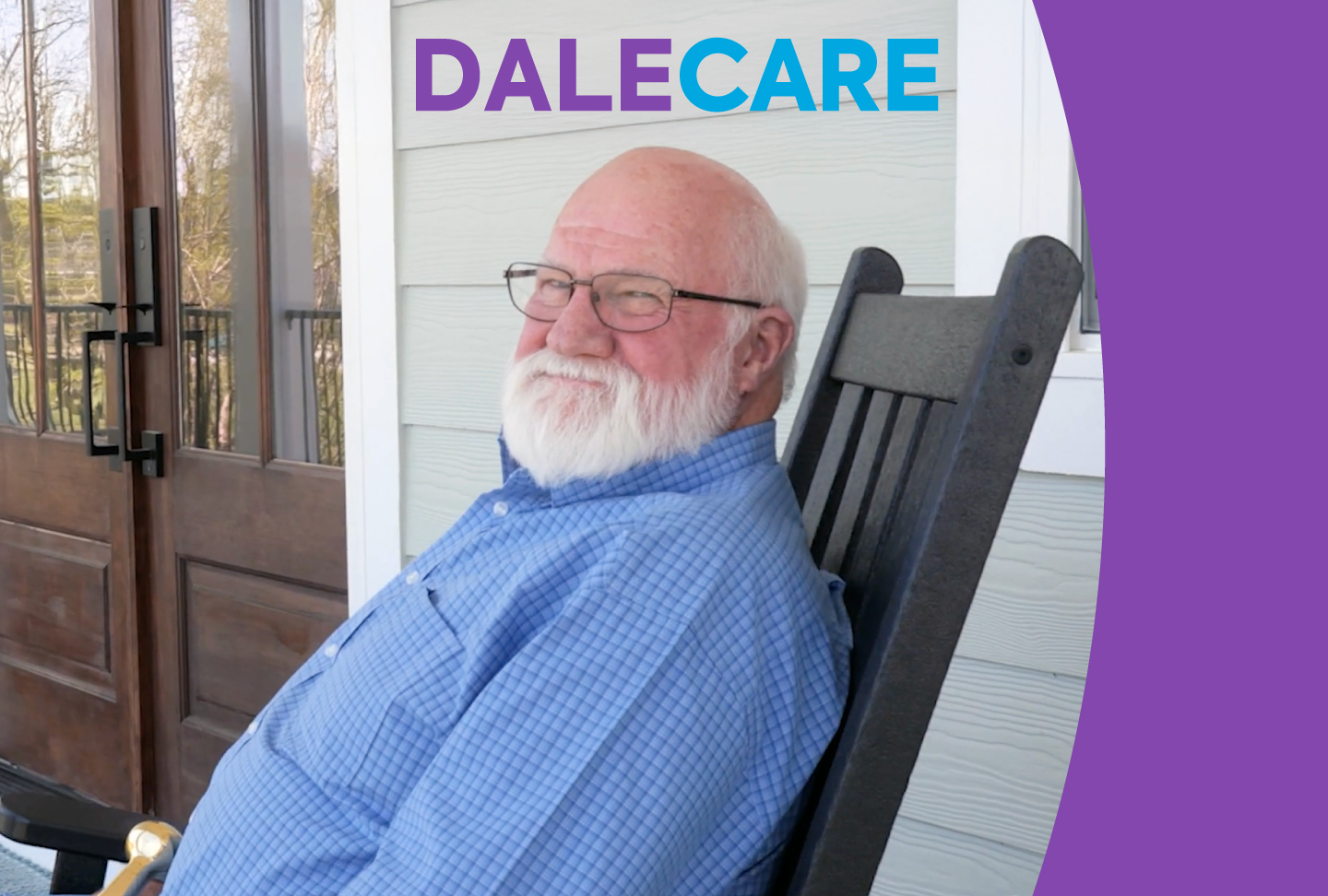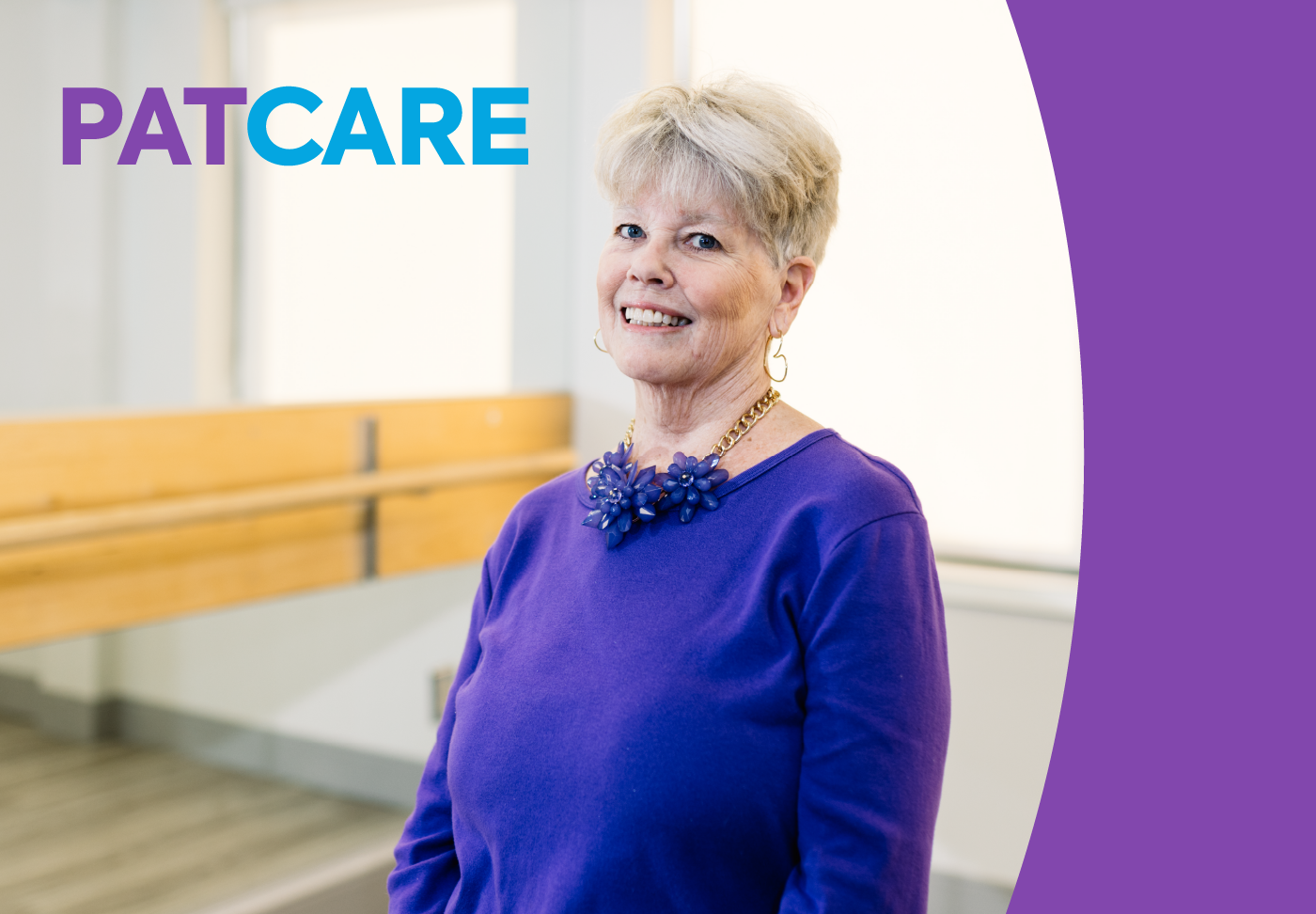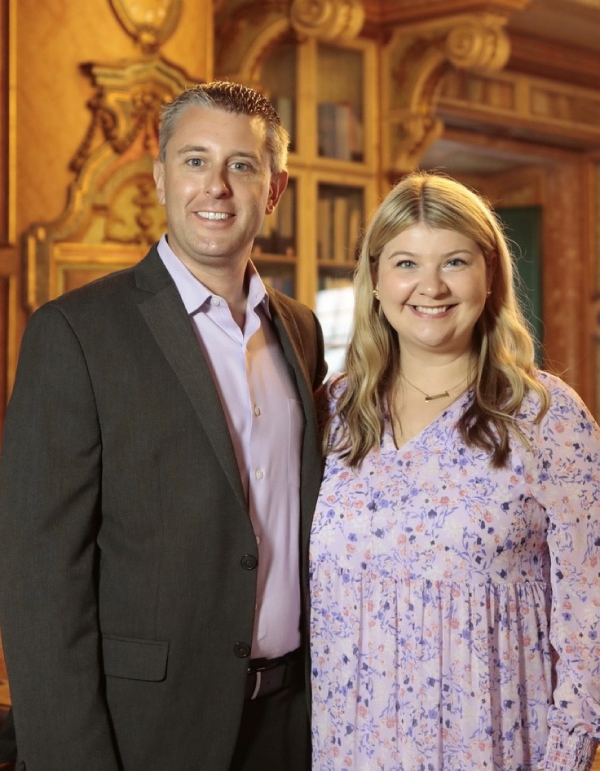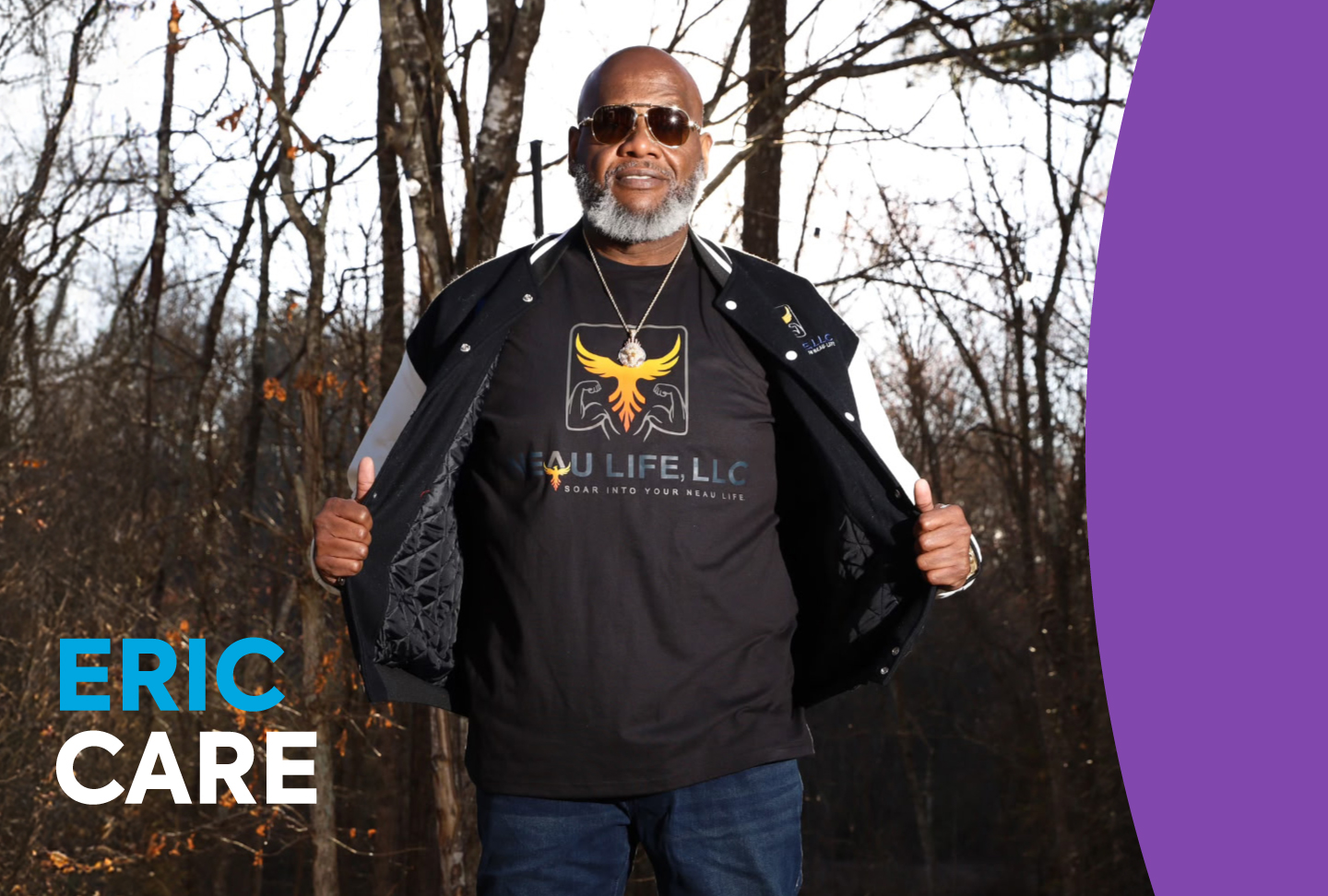A proactive tool to screen for cancer
Retired life was going well for Dale. The Evans resident enjoyed casting a line on the small lake near his home and cheering on his great-nieces and nephews at their sporting events. Cancer? That was the last thing on his mind.
But during an annual wellness visit, Dale’s longtime Wellstar primary care physician,
Dr. Thad Wilkins,
introduced him and his wife to Galleri—a groundbreaking blood test that screens for many of the deadliest cancers before symptoms develop. Wellstar MCG Health is the first hospital in Georgia to offer the test, which is performed with a single blood draw.
“Multi-cancer early detection screening offers my patients a way to screen for more than 50 cancer types,” explained Dr. Wilkins. “And that's in addition to the five cancers that we can screen for now, like
prostate,
breast,
cervical,
colon
and, in some cases,
lung cancer
."
Galleri is recommended for adults with an elevated risk for cancer, including those age 50 and older. Dr. Wilkins had taken the test himself and encouraged the couple to consider adding it to their routine lab work.
At first, they passed. Dale’s wife, a cancer survivor, eventually decided to take it. Fortunately, her results came back with no cancer signal detected.
Dale continued to think about it.
“I do whatever Dr. Wilkins tells me to do,” he said with a smile. “He takes a very active interest in my health and my wife's health and tells us what we should do and when we should do it. I’ve been with him over 20 years.”
At his next visit, Dale felt a nudge—and decided it was time. He left his physician’s office, walked across the street to Wellstar MCG Health and went to the lab for the quick and convenient blood test.
“I think God smiled on me that day and said, ‘Dale, you need to take this test,’” he shared.
An unexpected result
Just days after his blood draw, Dale received a call from Dr. Wilkins. The Galleri test was positive, with a cancer signal origin in the head and neck.
“For patients with a positive Galleri test, it's very important for me as their primary care physician to know that,” Dr. Wilkins said. “Not only do I get a positive cancer signal, but it also tells me where in the body that I need to look.”
“It was surprising,” Dale said of receiving the news. “Very surprising to hear that you've got the potential to have cancer in your body.”
Dale quickly underwent follow-up diagnostic testing at Wellstar MCG Health. First, he had a CAT scan, followed by a PET scan. Both confirmed the presence of cancer.
It was a lot to take in. Dale’s wife, having previously walked through her own cancer diagnosis, knew how hard the road could be. They were both worried—but deeply grateful the cancer was caught so early.
According to Dr. Wilkins, “The value of early treatment for cancer is that oftentimes you can avoid extensive surgery, and you may avoid radiation or chemotherapy.”
Personalized care, swift action
Dale was referred to
Dr. Daniel Sharbel,
a board-certified otolaryngologist and head and neck surgeon who specializes in
head and neck oncology.
“In my field, if you catch an early throat or oropharyngeal cancer, you're able to offer patients less intensive treatment strategies,” explained Dr. Sharbel. “If patients show up with more advanced tumors, then they may require multimodal treatments. … When caught early, they may be able to get just one treatment strategy: surgery or radiation.”
Because Dale’s cancer was caught so early, Dr. Sharbel was able to perform a radical tonsillectomy and neck dissection using transoral robotic surgery—a minimally invasive approach that offered the best chance at a full recovery without additional treatment.
“We had clear margins, and he had no adverse features that were indicators for needing radiation after surgery, and only one positive lymph node with cancer in it,” Dr. Sharbel said. “That allowed us to recommend sparing him radiation therapy after surgery.”
For Dale, the speed of diagnosis and the opportunity for early intervention made all the difference.
“Early detection of my cancer gave me an option of having surgery as quickly as allowable and neutralizing the cancer that was in my body,” Dale said. “My cancer was detected so early that the surgery was much less than what it would've been a year or two years down the road.”
Dr. Sharbel said Dale’s early diagnosis gave him the best possible path forward.
“He’s done great after surgery,” he said. “He’s got a great prognosis for five-year overall and disease-free survival. I think he’s going to continue to do very well.”
Dale said the care he received at Wellstar MCG Health stood out at every step—from diagnosis to surgery to recovery.
“My surgeon, after performing surgery in the morning, came by my room about 7:30 that evening and spent a good half an hour with me just talking,” Dale said of Dr. Sharbel. “And he needed to go home. He has a family, and he took the time to come and spend a lot longer with me than I may have expected. … The care has just been fantastic.”
For Dr. Sharbel, Dale’s experience reflects what’s possible when innovation and early detection come together.
“This is the story of a big win for patient care,” he said. “This is exactly what you want out of this test. You want to be able to get somebody a minimally invasive approach and spare them radiation where they don't have to deal with the lasting effects of radiation therapy. I mean, that's huge.”
Looking ahead with gratitude
Today, Dale is cancer-free. He’s back to the life he loves—fishing, spending time with family and encouraging others to be proactive about their health. But he knows the future isn’t guaranteed.
“The cancer is gone,” he said. “I always end that statement, though, ‘for right now.’”
That’s one reason why the Galleri test can be taken annually. Because deadly cancers can develop at any time—and some can progress quickly, even in less than a year—routine screening offers ongoing peace of mind.
However, “for patients like Dale, who had a confirmed head and neck cancer, it’s recommended that we wait three years before we resume annual Galleri testing,” Dr. Wilkins noted.
Dale says the combination of early detection and compassionate, expert care played a key role in his recovery.
“I’m very appreciative of the Galleri test and the quick action that was taken on my behalf by everyone at Wellstar MCG Health,” he said. “The Galleri test detected a cancer signal so early that I was very fortunate to have the cancer treated.”
He’s also become an advocate, sharing his experience with those close to him.
“I would—and I have—encouraged friends and family to look into the Galleri test,” Dale said. “Knowing what I've gone through and how it detected my cancer at such an early stage, they're thinking seriously about taking the test.”
Make an appointment with your Wellstar MCG Health clinician to discuss if the Galleri multi-cancer early detection is right for you, or call
(706) 721-9335
for more information about the test.
To schedule a wellness check, find a Wellstar primary care physician near you.





